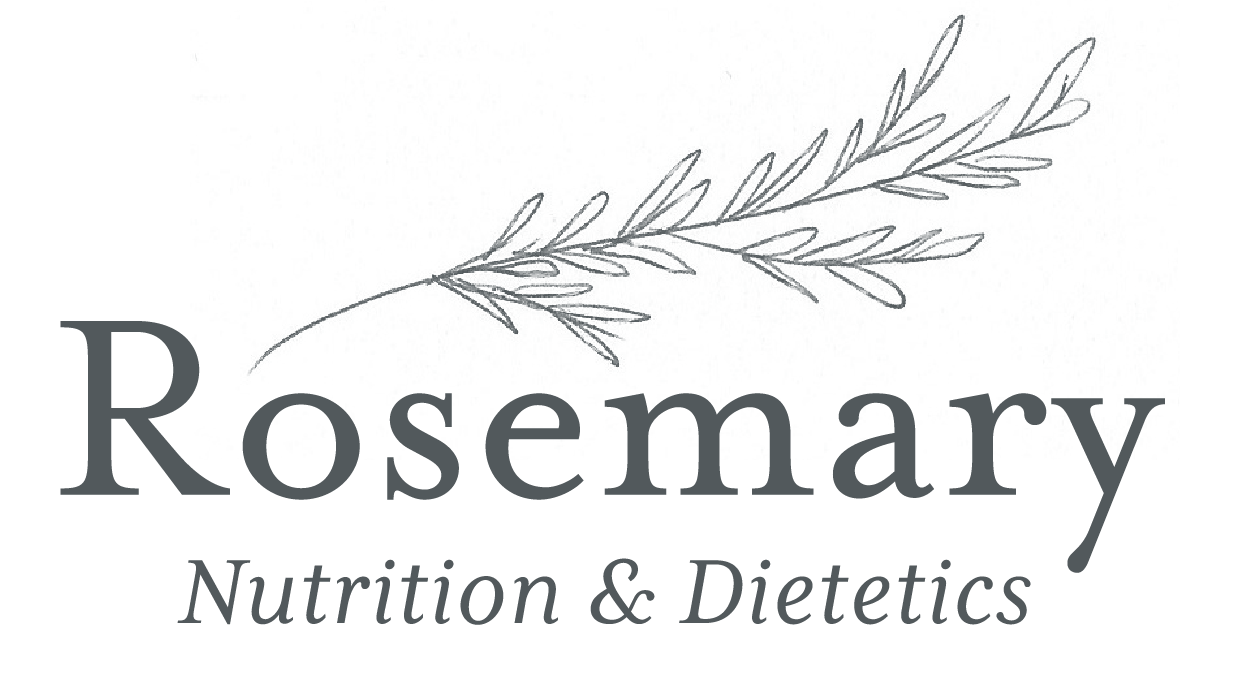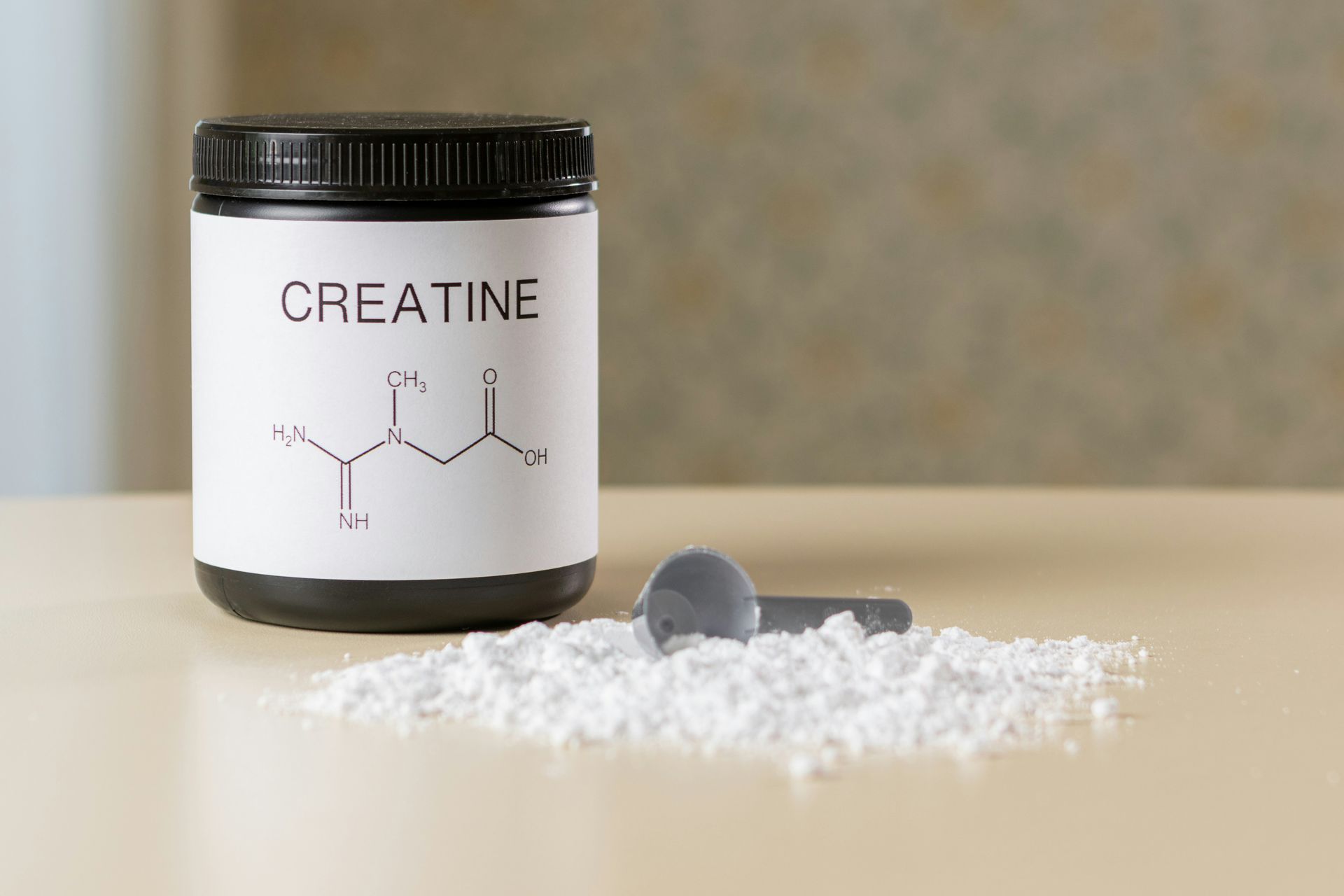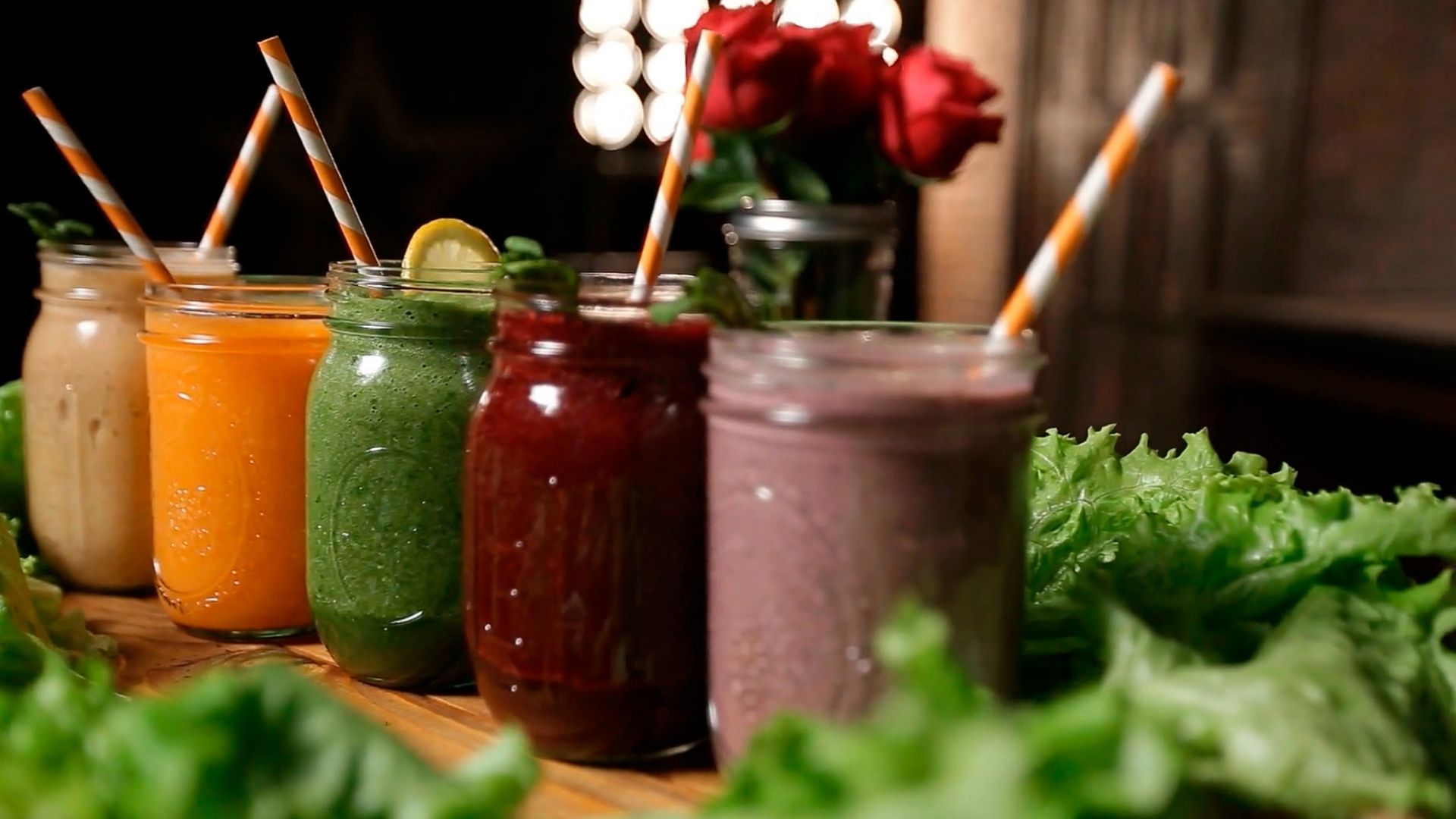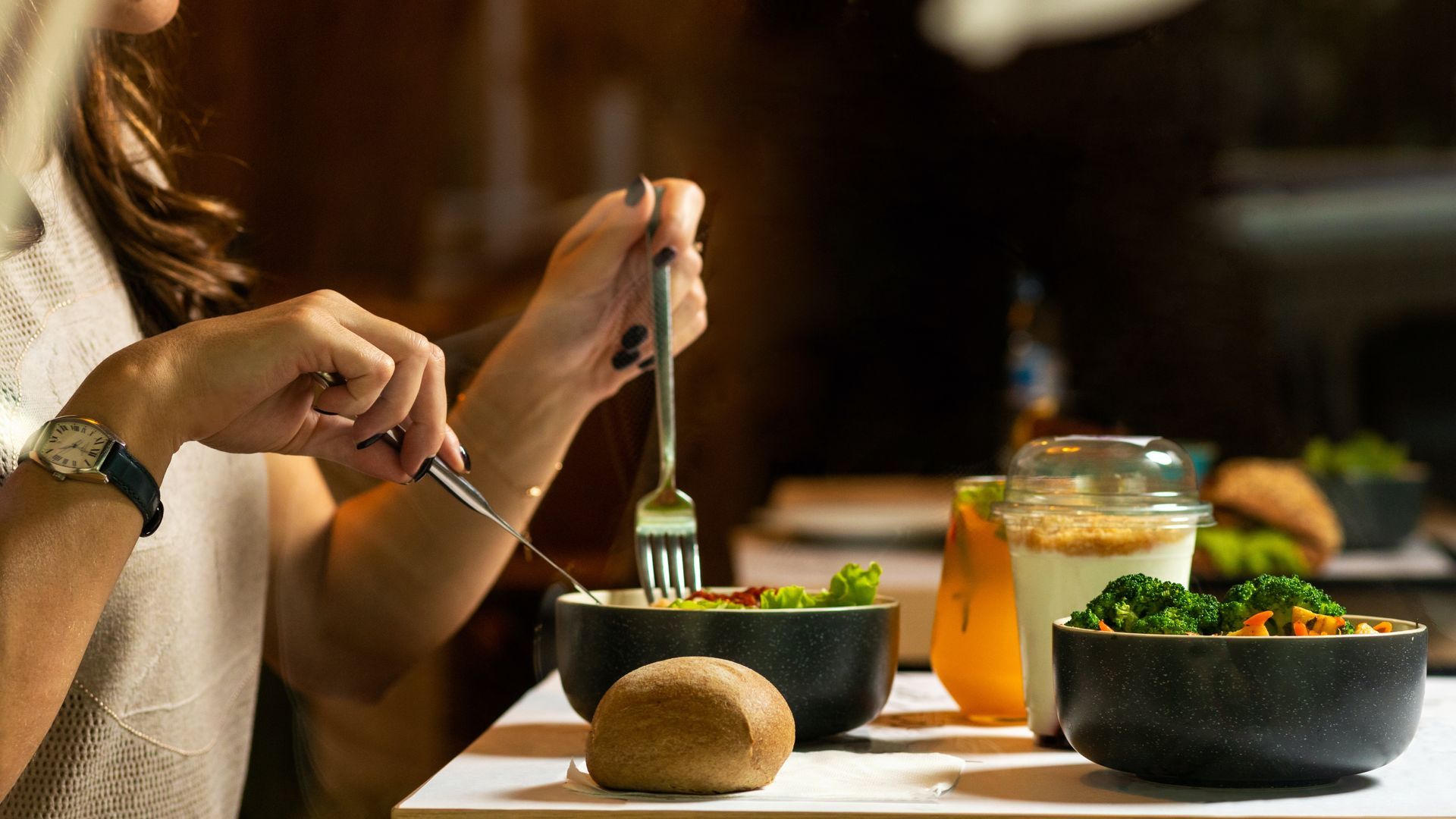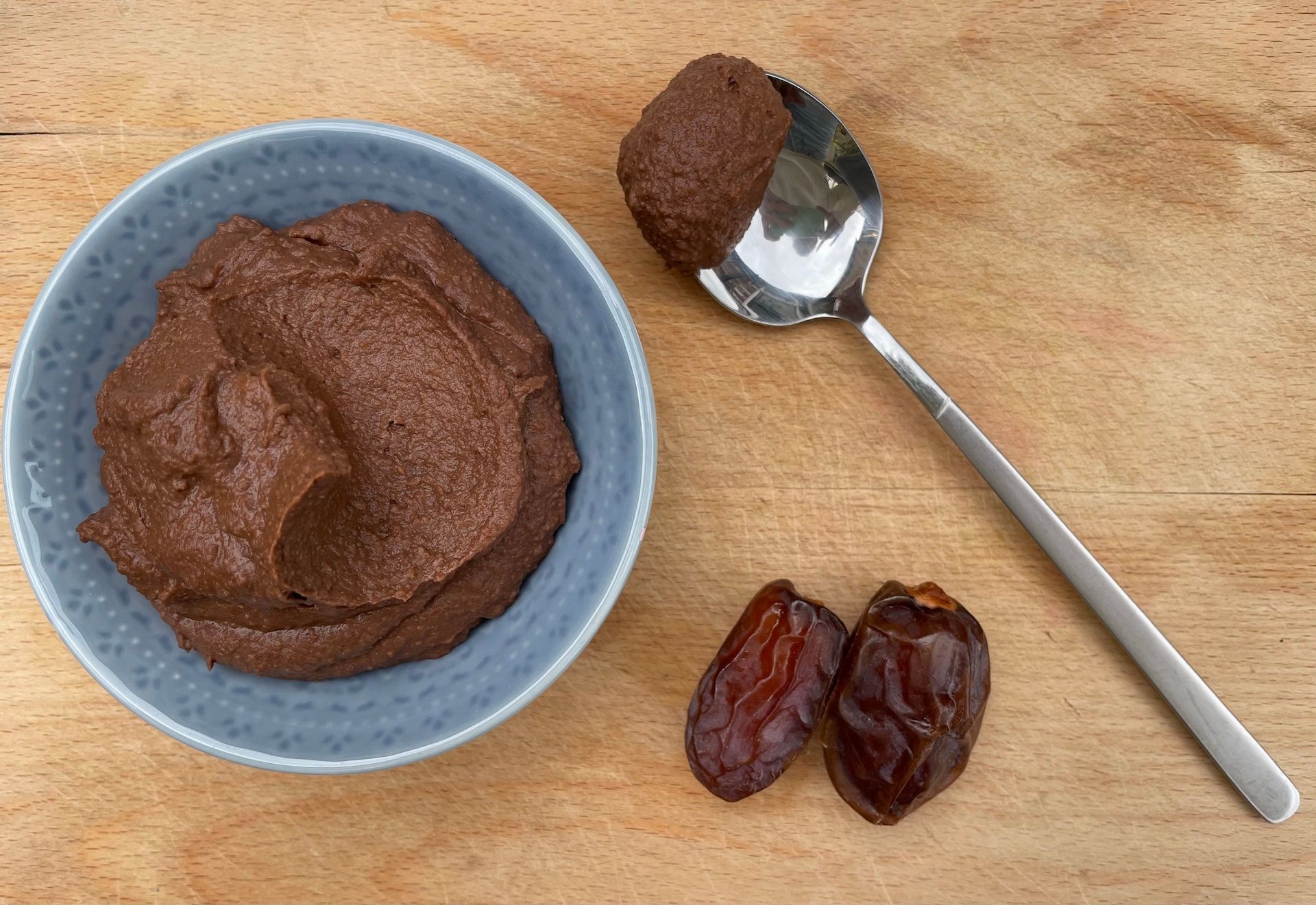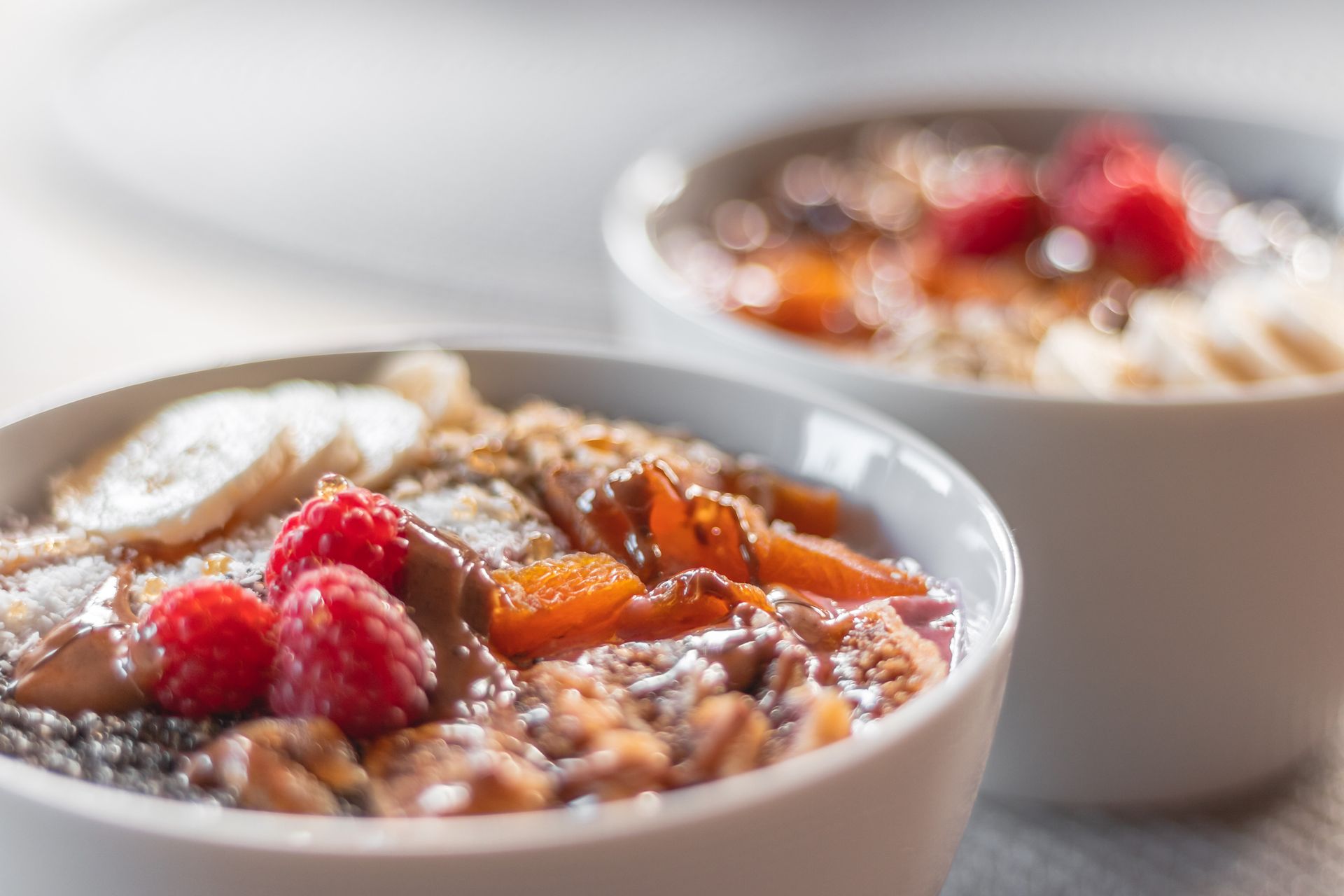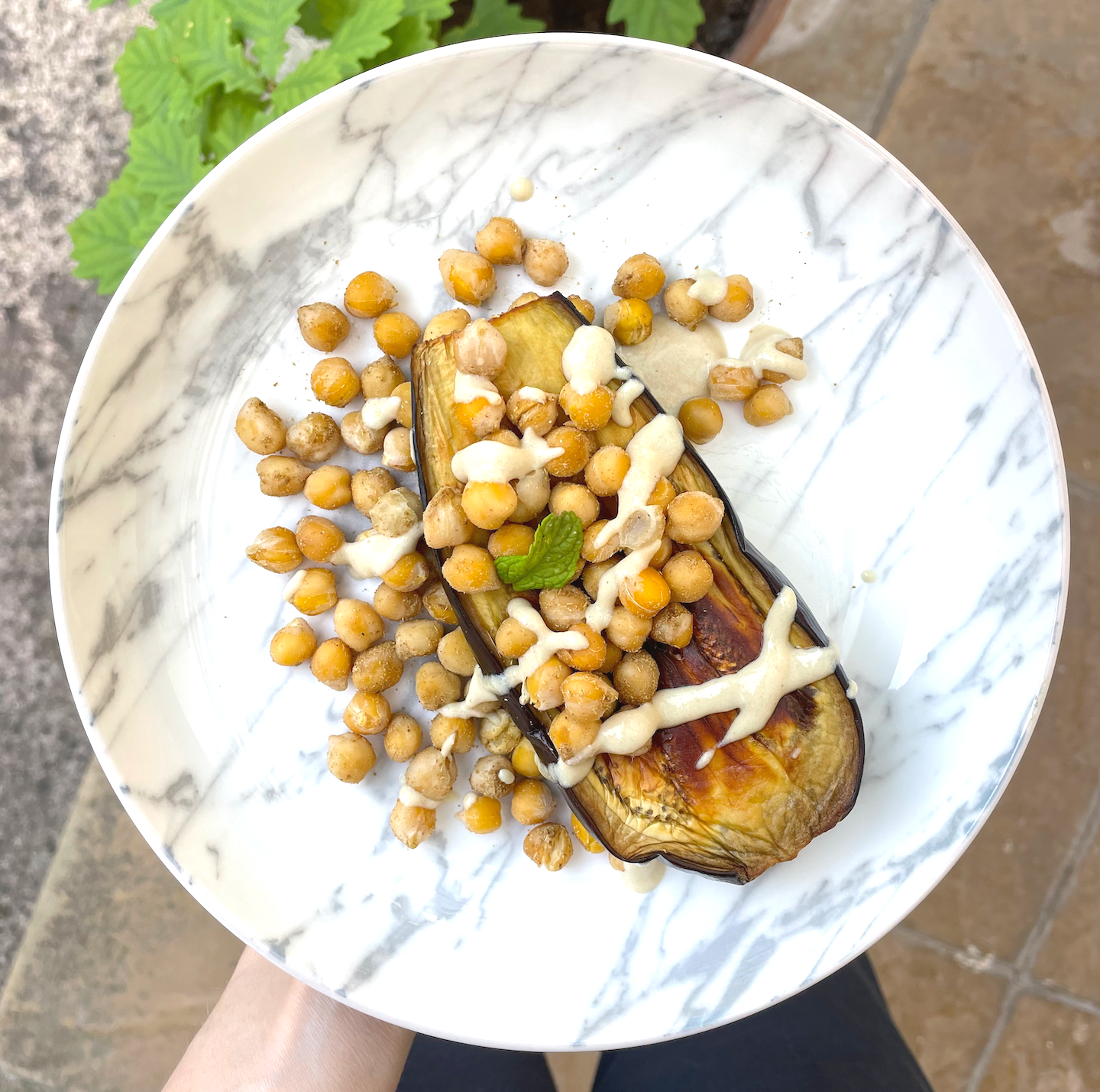Say Hello
Join our newsletter
Join our newsletter
Should Vegans Eat Chocolate?
We all love a bit of chocolate, right? And there are so many delicious vegan options on the market at the moment.
Well, we have some good news! Emerging research suggests that dark chocolate, as part of a healthy balanced diet, may have some important benefits for our health, from our gut to our heart to our mood (1). Cocoa contains around 380 different plant chemicals, including polyphenols, which have been widely researched for their potential health benefits across a range of plant foods (1). Polyphenols are specifically known for their anti-oxidant and anti-inflammatory properties (2). It is thought that a group of polyphenols known as flavanols may be responsible for the health benefits of cocoa and chocolate (1).
Cacao vs Cocoa vs Chocolate
Have you ever seen products marketed as containing “raw cacao” and wondered whether it is better for you than cocoa or chocolate? Both cacao and cocoa powders are made from the fruit of the Theobroma cacao tree, the cocoa bean, but they differ in the way they are processed (3). Cacao refers to the unroasted beans, which are processed by air-drying, whereas roasting the beans is performed to produce cocoa powder and most chocolates. This can create both a different taste and an altered nutrition profile as roasting may reduce the level of polyphenols (4).
Chocolate is probably the most popular cocoa-based product consumed. Differing proportions of cocoa solids, cocoa butter and fats define the type of chocolate. In general, dark chocolate is considered the healthier choice. The higher percentage of cocoa solids means more health promoting polyphenols and usually less sugar too.
'Research suggests that the gut microbiota may be the key to the health benefits of chocolate'
Chocolate and gut health
Our digestive systems contain an extensive community of microbial species known collectively as the gut microbiota. The gut microbiota is responsible for a variety of essential functions from digestion to our immune system. Research suggests that the gut microbiota may be the key to the health benefits of chocolate.
Up to 90-95% of ingested polyphenols are fermented by the gut bacteria and absorbed into the body (1). One study has indicated that the consumption of a flavanol-rich cocoa drink significantly increased the levels of beneficial bacteria in the gut microbiota; more specifically Bifidobacterium and Lactobacillus species (5). This means that flavanols could act as a prebiotic, an energy source that allows the beneficial bacteria to thrive (2). It has become increasingly evident that to have overall good health, we need to nourish our gut microbes. Therefore, including a range of plant-based foods that contain prebiotics, including cocoa, is a good way to support both our gut and overall health.
Chocolate and Heart Health
Studies have shown that dark chocolate intake has been significantly associated with lower incidence of high blood pressure, one of the leading contributors to a variety of conditions including cardiovascular disease (6). The higher polyphenol content in dark chocolate compared to other chocolate products is thought to be responsible. This is because polyphenols are believed to be involved in a series of complex signalling pathways in the body that leads to the relaxation of the blood vessel walls, and thus lower blood pressure (2). In addition, a recent study in patients with diabetes showed that dark chocolate consumption was associated with significantly lower levels of LDL-cholesterol, the so-called “bad cholesterol” that is also linked to heart disease (7).
'The smooth texture and sweetness helps to explain our desire to eat chocolate'
Chocolate and Brain Health
Many of us reach for chocolate during times of stress or when we are feeling low, and emerging research suggests that chocolate may actually help to boost our mood.
A recent study found that regular consumption of 85% dark chocolate (but not 70% dark chocolate) resulted in a significant reduction in negative emotions by the end of the 3-week experiment period (8). Interestingly, they found that this effect could be mediated by changes in the gut microbiota, as those consuming 85% dark chocolate experienced significant increases in gut microbial diversity, one of the indicators of a healthy gut. Again, this is thought to be due to the polyphenol content, which is higher in the 85% dark chocolate. Dietary polyphenol intake has been negatively associated with depressive symptoms (i.e. when polyphenol intake goes up, depressive symptoms appeared to go down), which could be due to the anti-oxidant properties of polyphenols, which protect cells from damage (9, 10).
Although most research has focused on the polyphenol content of chocolate, another important group of plant chemicals which may have mood boosting properties, is the methylxanthines, which include caffeine and theobromine. It has been suggested that the combination of theobromine, caffeine and polyphenols in chocolate may work together to improve mood (11).
Let’s not forget the sensory properties of chocolate that we all love! The smooth texture and sweetness helps to explain our desire to eat chocolate and contributes to its effects on our mood (11).
Tips when choosing vegan chocolate:
- To reap the health benefits of chocolate, consider choosing a dark chocolate option. The higher the percentage of cocoa solids the better for a boost of health-promoting polyphenols. Remember that vegan milk and white chocolates have a lower percentage of cocoa solids and are high in fat and sugar, so although they are absolutely fine to enjoy on occasion, they won’t provide the same benefits as dark options.
- You may also want to consider sustainability. Global demand for cocoa is rising, meaning current farming practices are causing extensive deforestation of tropical forests, to make space for new cocoa trees, with subsequent biodiversity losses (12). Many cocoa farmers also experience extreme poverty, due to not being paid fairly for their cocoa. Look for fair trade options, as these meet both social and environmental standards for companies and workers. Choosing organic chocolate where you can also helps the environment by supporting organic farming practices that protect the planet’s soils, ecosystems, and climate (13).
- Finally, remember that no single food is a miracle. There are many other food sources of polyphenols such as fruits, vegetables, and tea (2). There are also so many nutrients that chocolate cannot provide. We therefore cannot place all of the focus on this one ingredient. The key to optimal health is still a varied and balanced diet.
Written by Charlotte Green, Student Dietitian for Rosemary Nutrition.
Reviewed by Rosemary Martin RD.
Hello! I'm Rosie, a vegan and plant-based registered dietitian, as well as working for the NHS, I am founder of Rosemary Nutrition & Dietetics.
If you want more from us, sign up to our mailing to list via the contact page to receive a free 7 day meal plan with recipes and a shopping list, plus extra freebies via email.
You can contact me at
rosie@rosemarynutrition.co.uk or follow me on Instagram at
@plantdietitianrosie.
References
- https://pubmed.ncbi.nlm.nih.gov/32605083/
- https://pubmed.ncbi.nlm.nih.gov/35694805/
- https://pubmed.ncbi.nlm.nih.gov/26743883/
- https://pubmed.ncbi.nlm.nih.gov/33371573/
- https://pubmed.ncbi.nlm.nih.gov/21068351/
- https://pubmed.ncbi.nlm.nih.gov/38200066/
- https://pubmed.ncbi.nlm.nih.gov/34089280/
- https://pubmed.ncbi.nlm.nih.gov/34530112/
- https://pubmed.ncbi.nlm.nih.gov/29695122/
- https://pubmed.ncbi.nlm.nih.gov/30323120/
- https://pubmed.ncbi.nlm.nih.gov/29539647/
- https://pubmed.ncbi.nlm.nih.gov/32942899/
- https://www.soilassociation.org/take-action/organic-living/what-is-organic/organic-chocolate/
